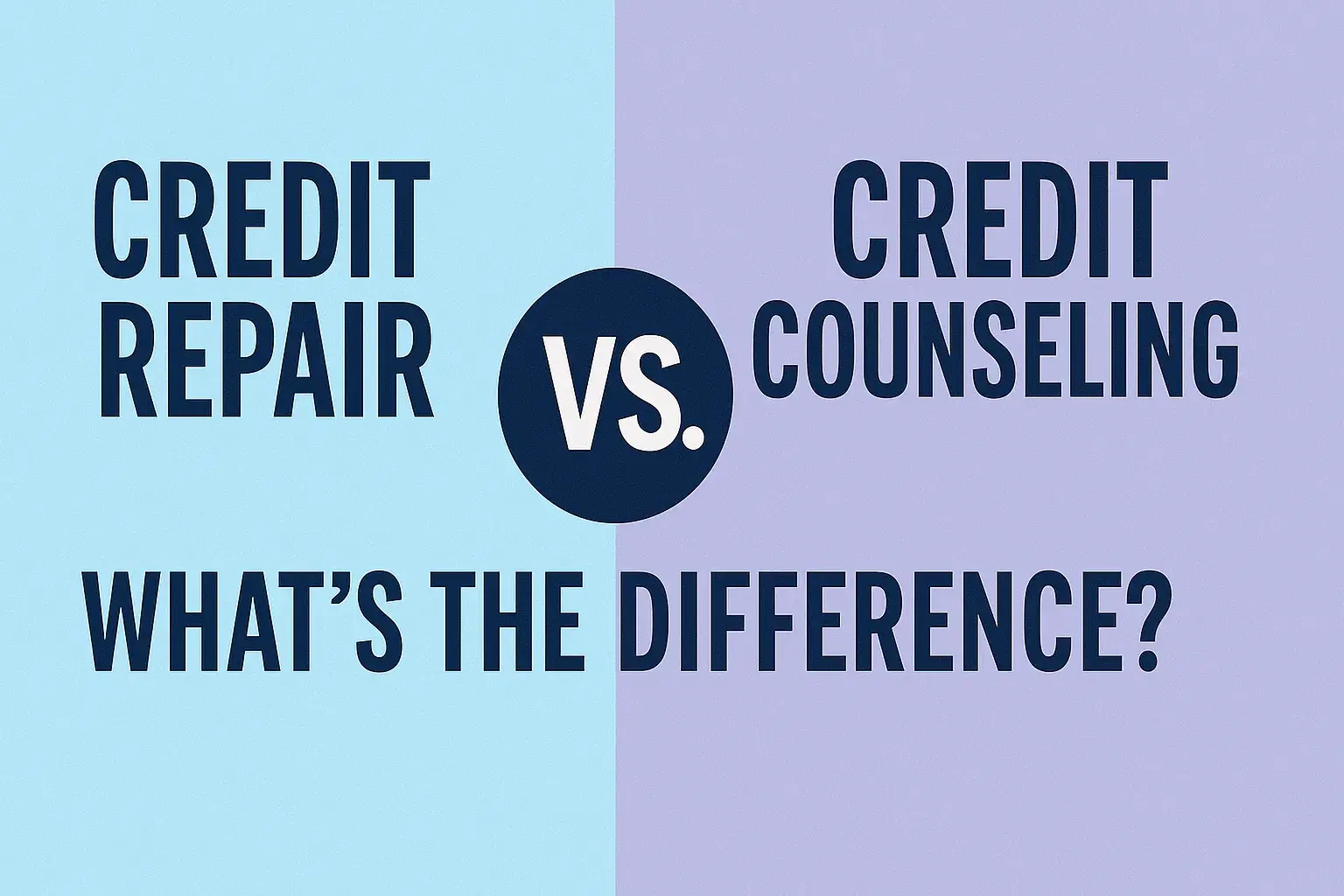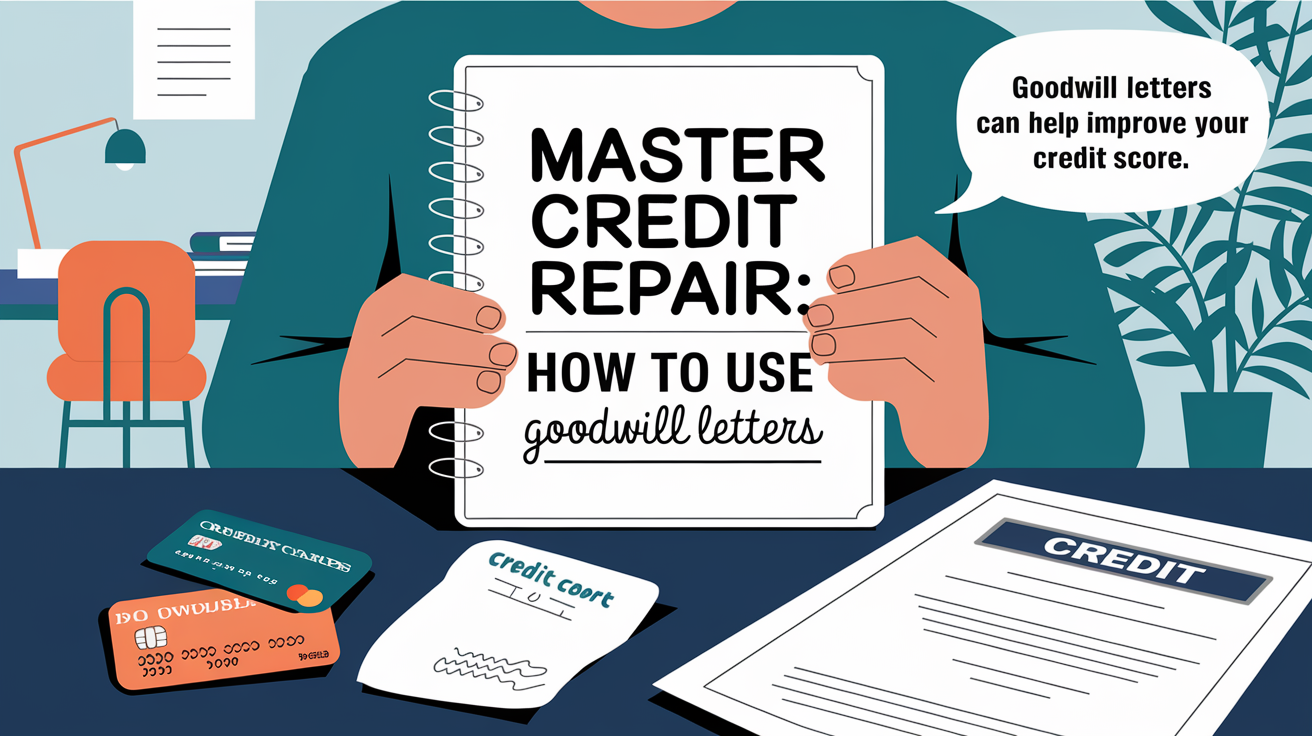How To Repair My Credit Myself?
Feeling overwhelmed by credit score worries? This guide empowers you to take control and repair your credit yourself, providing actionable steps and insights to rebuild a strong financial future without costly services.
Understanding Your Credit Score
Your credit score is a three-digit number that lenders use to assess your creditworthiness. It's a snapshot of your financial behavior, indicating how likely you are to repay borrowed money. In 2025, FICO scores remain the most widely used scoring model, typically ranging from 300 to 850. A higher score signifies lower risk, making it easier to qualify for loans, mortgages, credit cards, and even rent an apartment or secure certain jobs. Conversely, a low score can lead to higher interest rates, denied applications, and significant financial hurdles. Understanding the factors that influence your score is the first critical step in repairing it yourself.
Key Factors Influencing Your Credit Score
The most impactful elements on your credit score are:
- Payment History (35%): This is the most significant factor. Consistently paying bills on time demonstrates reliability. Late payments, defaults, and bankruptcies can severely damage your score.
- Amounts Owed (30%): This refers to your credit utilization ratio – the amount of credit you're using compared to your total available credit. Keeping this ratio low is crucial.
- Length of Credit History (15%): The longer you've had credit accounts and managed them responsibly, the better.
- Credit Mix (10%): Having a mix of different credit types (e.g., credit cards, installment loans) can be beneficial, but it's less impactful than payment history or amounts owed.
- New Credit (10%): Opening too many new accounts in a short period can negatively affect your score, as it may suggest financial distress.
Why DIY Credit Repair is Powerful
Many services claim to fix your credit for a fee, but often they perform tasks you can do yourself for free. By understanding the mechanics of credit scoring and reporting, you can effectively manage your credit profile, dispute inaccuracies, and implement strategies to improve your score over time. This DIY approach not only saves money but also provides invaluable financial literacy.
Accessing Your Credit Reports
Before you can repair your credit, you need to know what's on your credit reports. These reports are compiled by three major credit bureaus: Equifax, Experian, and TransUnion. They contain detailed information about your credit history, including all your credit accounts, payment history, outstanding debts, and any public records like bankruptcies or collections.
Your Right to Free Credit Reports
Under the Fair Credit Reporting Act (FCRA), you are entitled to a free copy of your credit report from each of the three major bureaus every 12 months. The official website for obtaining these free reports is AnnualCreditReport.com. Be wary of other websites that may offer "free" reports but are actually trying to sell you services or require a credit card number.
How to Request Your Reports
You can request your reports online, by phone, or by mail. For the most efficient process, visiting AnnualCreditReport.com is recommended. You'll need to provide personal information to verify your identity, such as your Social Security number, date of birth, and address. It's advisable to stagger your requests throughout the year (e.g., request one report every four months) to monitor your credit more frequently.
What to Look For in Your Reports
Once you receive your reports, carefully review them for accuracy. Pay close attention to:
- Personal Information: Ensure your name, address, Social Security number, and date of birth are correct.
- Account Information: Verify that all credit accounts listed belong to you and that the balances and payment statuses are accurate.
- Inquiries: Check for any hard inquiries that you don't recognize. Hard inquiries occur when a lender checks your credit for a loan or credit card application.
- Public Records: Look for any bankruptcies, liens, or judgments that are not yours or are outdated.
Disputing Errors on Your Credit Reports
Errors on your credit reports are more common than you might think, and they can significantly drag down your credit score. Fortunately, the FCRA gives you the right to dispute any inaccurate information with the credit bureaus and the furnisher of the information (e.g., the credit card company or lender).
The Dispute Process: Step-by-Step
Here’s how to effectively dispute an error:
- Identify the Error: Thoroughly review your credit reports from all three bureaus.
- Gather Evidence: Collect any supporting documents that prove the information is incorrect. This could include payment receipts, statements, or letters from creditors.
- Write a Dispute Letter: Draft a clear and concise dispute letter to the credit bureau reporting the error. Include your personal information, the account number in question, and a clear explanation of why the information is inaccurate. Attach copies (never originals) of your supporting evidence.
- Send the Letter: Send your letter via certified mail with a return receipt requested. This provides proof that the bureau received your dispute.
- Credit Bureau Investigation: The credit bureau has 30 days (or 45 days if you submit additional information during the 30-day period) to investigate your dispute. They will contact the furnisher of the information to verify its accuracy.
- Furnisher Verification: The furnisher must investigate the disputed item and report back to the credit bureau.
- Resolution: If the information is found to be inaccurate, the credit bureau must correct or remove it. You will receive a notification of the outcome.
Disputing with the Furnisher Directly
In addition to disputing with the credit bureaus, you can also dispute directly with the company that provided the information to the bureaus (the furnisher). This can sometimes expedite the process. Your dispute letter to the furnisher should follow a similar format to the one sent to the credit bureau.
Common Errors and How to Dispute Them
- Incorrect Account Balances: If a balance is reported incorrectly, provide statements showing the accurate amount.
- Late Payments You Didn't Make: If a payment is marked late but you have proof it was made on time, submit your payment history.
- Accounts That Aren't Yours: If you find an account you never opened, it could be identity theft. Dispute it immediately and consider filing a police report.
- Outdated Information: Negative information like late payments generally stays on your report for seven years (bankruptcies for 7-10 years). If something is reported beyond these limits, it's an error.
Strategies for Managing and Reducing Debt
High debt levels, particularly credit card debt, are a major contributor to low credit scores. Effectively managing and reducing your debt is paramount to repairing your credit. This involves creating a realistic budget, prioritizing payments, and exploring different debt reduction strategies.
Creating a Realistic Budget
A budget is your roadmap to financial control. Start by tracking your income and all your expenses for a month. Categorize your spending (housing, food, transportation, entertainment, debt payments). Identify areas where you can cut back to free up more money for debt repayment.
Debt Reduction Strategies
Several popular strategies can help you tackle your debt:
- Debt Snowball Method: Pay off your smallest debts first while making minimum payments on larger ones. Once a small debt is paid off, roll that payment amount into the next smallest debt. This method provides psychological wins and motivation.
- Debt Avalanche Method: Prioritize paying off debts with the highest interest rates first, while making minimum payments on others. This saves you the most money on interest over time.
Example: Debt Snowball vs. Debt Avalanche
Let's say you have three debts:
| Debt | Balance | Minimum Payment | Interest Rate |
|---|---|---|---|
| Credit Card A | $1,000 | $25 | 22% |
| Personal Loan B | $3,000 | $75 | 15% |
| Credit Card C | $5,000 | $125 | 18% |
Total Minimum Payments: $225/month.
Debt Snowball: You'd focus extra payments on Credit Card A ($1,000). Once paid, you'd add its $25 minimum plus any extra payment to Personal Loan B ($3,000). Once that's paid, you'd roll both payments into Credit Card C ($5,000).
Debt Avalanche: You'd focus extra payments on Credit Card A (22% interest). Once paid, you'd move to Credit Card C (18% interest), then Personal Loan B (15% interest).
The Avalanche method will save more money on interest, while the Snowball method can be more motivating.
Negotiating with Creditors
If you're struggling to make payments, don't hesitate to contact your creditors. They may be willing to work with you to set up a more manageable payment plan, reduce interest rates, or even settle the debt for less than the full amount owed. Document all your conversations and any agreements made.
Debt Consolidation and Balance Transfers
Debt Consolidation: This involves taking out a new loan to pay off multiple existing debts. The goal is to simplify payments and potentially secure a lower interest rate. A personal loan or a home equity loan can be used for this. Be cautious, as consolidating secured debts (like a mortgage) into an unsecured loan increases risk.
Balance Transfers: Many credit cards offer 0% introductory APR periods for balance transfers. This can be a powerful tool to pay down high-interest debt without accruing new interest for a limited time. However, be aware of balance transfer fees and the interest rate after the introductory period ends. Always aim to pay off the balance before the promotional period expires.
Improving Your Credit Utilization Ratio
Your credit utilization ratio (CUR) is the second most significant factor influencing your credit score. It's calculated by dividing the total amount of revolving credit you're using by your total available revolving credit. For example, if you have a credit card with a $5,000 limit and a $2,000 balance, your CUR for that card is 40% ($2,000 / $5,000).
Why a Low CUR is Crucial
Experts generally recommend keeping your overall credit utilization below 30%, and ideally below 10%, for the best impact on your credit score. A high CUR suggests you may be overextended and at a higher risk of defaulting on your debts.
Strategies to Lower Your CUR
- Pay Down Balances: The most direct way to lower your CUR is to pay down the balances on your credit cards. Focus on paying more than the minimum payment whenever possible.
- Increase Credit Limits: Contact your credit card issuers and request a credit limit increase. If approved, this will lower your CUR without you having to spend less, assuming your spending remains the same. Be sure you can manage the higher limit responsibly.
- Spread Balances Across Cards: If you have multiple credit cards with high balances, consider shifting some of the balance from one card to another with a lower utilization or a higher limit. This is often best done with a balance transfer if it's cost-effective.
- Make Multiple Payments Per Month: Some card issuers report your balance to the credit bureaus on a specific date each month. By making payments throughout the month, you can ensure a lower balance is reported.
Example: Impact of CUR
Consider two individuals with the same total credit limit of $10,000:
- Person A: Total balances of $5,000. CUR = 50% ($5,000 / $10,000).
- Person B: Total balances of $1,000. CUR = 10% ($1,000 / $10,000).
Person B, with a much lower CUR, will likely have a significantly higher credit score than Person A, assuming all other factors are equal.
Monitoring Your Utilization
Regularly check your credit utilization on each card and your overall utilization. This will help you stay on track and make necessary adjustments proactively.
The Crucial Role of Payment History
As mentioned, payment history is the single most important factor in your credit score, accounting for approximately 35% of your FICO score. Lenders want to see a consistent track record of responsible borrowing and timely repayment. Even a single missed payment can have a substantial negative impact.
The Damage of Late Payments
A late payment can drop your score by dozens of points, depending on your existing score and how late the payment is (30, 60, 90 days past due). The longer a payment is overdue, the more severe the damage. A 30-day late payment is less damaging than a 90-day late payment or a delinquency that leads to a charge-off or collection.
Strategies for On-Time Payments
- Set Up Automatic Payments: Most lenders offer automatic payment options. Set up autopay for at least the minimum payment amount to ensure you never miss a due date.
- Use Payment Reminders: Utilize calendar alerts, smartphone reminders, or budgeting apps to remind you of upcoming due dates.
- Pay Bills Immediately Upon Receipt: If you prefer to manually pay, make it a habit to pay bills as soon as you receive them, rather than waiting until the due date.
- Understand Due Dates vs. Grace Periods: Be aware that the due date is the last day to pay without incurring a late fee or a mark on your credit report. Some cards have grace periods, but relying on them is risky. A payment is considered late if it's not received by the due date.
Dealing with Past Due Accounts
If you have past due accounts, your immediate priority is to bring them current. Contact the lender to understand the exact amount needed to cure the delinquency and make that payment as soon as possible. Once current, focus on making all future payments on time.
The Impact of Collections and Charge-Offs
Accounts sent to collections or charged off by the original creditor are severe negative marks. Collections mean a third party is attempting to recover the debt. A charge-off means the creditor has given up on collecting the debt and written it off as a loss. These can remain on your report for up to seven years and significantly lower your score.
Building Positive Credit History
For those with limited credit history or recovering from past mistakes, building positive credit is essential. This involves strategically opening and managing new credit accounts responsibly.
Secured Credit Cards
Secured credit cards are designed for individuals with poor or no credit. They require a cash deposit that typically serves as your credit limit. By using the card responsibly and making on-time payments, you can demonstrate creditworthiness to the bureaus. After a period of responsible use (usually 6-12 months), many issuers will review your account and may refund your deposit, converting it to an unsecured card.
Credit-Builder Loans
A credit-builder loan is a small loan where the borrowed amount is held in a savings account by the lender. You make regular payments on the loan, and once it's fully repaid, you receive the money. The payments are reported to the credit bureaus, helping you build a positive payment history.
Authorized User Status
Becoming an authorized user on a friend or family member's credit card can be a way to benefit from their good credit history. The primary cardholder's payment history for that account may appear on your credit report. However, choose this option carefully, as any negative activity on the primary cardholder's account can also affect your credit. Ensure the primary user has an excellent payment history and low utilization.
Responsible Use of Existing Credit
If you have existing credit accounts, even if they have negative marks, focus on using them positively going forward. Make all payments on time, keep balances low, and avoid closing old accounts unless there's a compelling reason (like a high annual fee you can't justify). The length of your credit history is a factor, so keeping older accounts open can be beneficial.
Example: Rebuilding with a Secured Card
Sarah had a few late payments on her credit cards and her score dropped. She applied for a secured credit card with a $300 deposit. She used it for small, everyday purchases like gas and groceries, and always paid the full balance before the due date. After 12 months, her secured card issuer converted it to an unsecured card with a higher limit, and her credit score saw a significant improvement due to the consistent positive payment history.
Effective Credit Monitoring
Regularly monitoring your credit is not just about spotting errors; it's about staying informed of any changes that could impact your score and detecting potential fraud or identity theft early.
Why Monitor Your Credit?
- Detect Fraud: Unauthorized accounts or inquiries can be early signs of identity theft.
- Track Progress: See how your credit repair efforts are affecting your score and reports.
- Identify Errors: Catch inaccuracies quickly before they cause significant damage.
- Stay Informed: Understand how new credit activity impacts your score.
Tools and Services for Monitoring
Several options exist for monitoring your credit:
- Free Annual Reports: As mentioned, AnnualCreditReport.com provides free reports annually.
- Credit Card Company Services: Many credit card issuers now offer free credit score monitoring as a cardholder benefit. Check if your cards provide this service.
- Free Credit Monitoring Services: Reputable services like Credit Karma, Credit Sesame, and others offer free access to your credit scores and reports, often updated monthly. While these are generally reliable, they may not use the exact FICO scoring model that lenders use.
- Paid Credit Monitoring Services: For more comprehensive protection, paid services offer real-time alerts for changes to your credit reports, identity theft insurance, and sometimes dark web monitoring.
What to Do When You See a Change
If you notice a significant change in your score or an unfamiliar item on your report, investigate immediately. If it's an error, follow the dispute process outlined earlier. If it's potential fraud, contact the credit bureaus and the affected financial institutions immediately.
Maintaining Long-Term Credit Health
Repairing your credit is a journey, and maintaining good credit health is an ongoing commitment. Once you've made significant progress, focus on sustainable habits to keep your score high and your financial future secure.
Consistent Good Habits
- Always Pay Bills On Time: This remains the most critical factor. Automate payments or set robust reminders.
- Keep Credit Utilization Low: Aim to keep your balances well below 30% of your credit limits.
- Avoid Opening Too Many New Accounts Quickly: Space out credit applications.
- Review Your Credit Reports Annually: Even when your credit is good, a yearly check-up is wise.
- Be Cautious with New Credit: Only open new accounts when you genuinely need them and can manage them responsibly.
The Power of Patience
Credit repair takes time. Negative information eventually falls off your reports, and positive actions build up over months and years. Don't get discouraged by slow progress. Focus on consistent, responsible financial behavior, and your score will improve.
Seeking Professional Help (When Necessary)
While this guide focuses on DIY credit repair, there are times when professional help might be considered. If you are dealing with complex situations like widespread identity theft, overwhelming debt, or legal judgments, a reputable credit counselor or a qualified attorney specializing in consumer law might be beneficial. Always thoroughly vet any professional service before engaging them.
Final Thoughts on Financial Literacy
The most valuable outcome of repairing your credit yourself is the increased financial literacy and confidence you gain. Understanding how credit works empowers you to make smarter financial decisions throughout your life, leading to greater financial freedom and security.
By diligently following the steps outlined in this comprehensive guide, you are well-equipped to repair your credit yourself. Remember that consistency, patience, and a commitment to good financial habits are your greatest allies in building and maintaining a strong credit profile for years to come.
Related Stories
Recent Posts
Does Closing a Checking Account Affect Your Credit Score? Here’s the Truth
Is a Home Equity Loan a Second Mortgage? The Definitive 2025 Guide
Which Credit Score is Most Accurate? FICO vs VantageScore
Does Closing a Checking Account Affect Credit Score? – Complete Guide for Consumers
Credit Captain Reviews (2025): Is It Legit, Safe, and Worth It?



